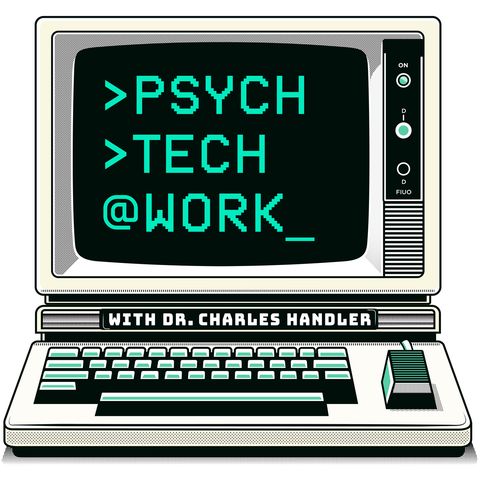EEOC Commissioner Keith Sonderling’s Take on Government Regulation in the Age of AI

Scarica e ascolta ovunque
Scarica i tuoi episodi preferiti e goditi l'ascolto, ovunque tu sia! Iscriviti o accedi ora per ascoltare offline.
Descrizione
"From the EEOC's perspective, whether an employment action, employment decision is made by a human or an algorithm, liability is going to be the same for those companies." "AI tools...
mostra di piùBefore we begin- Commissioner Sonderling requested that I share a link to this important report (Algorithms, Artificial Intelligence, and Disability Discrimination in Hiring). While the report focuses on the Americans With Disabilities Act, the ideas put forth apply directly to employment decision making and is an important missive summarizing the government’s position on the relationship between AI and foundational regulation related to concepts such as the ⅘ rule and disparate impact.
Summary:
How lucky are we? My guest for this episode is none other than the grand poobah of employment regulations in the US, EEOC commissioner Keith Sonderling. The Commissioner has many great attributes that underlie his approach to the creation and enforcement of legislation critical to ensuring everyone gets a fair shake when it comes to employment opportunities. But I think one of his greatest attributes is his mission to make himself accessible to all channels of media and communication, including humble podcasters such as myself.
In some sense, my big takeaway from our discussion is the idea that the more things change, the more they stay the same. By this I mean that the central tenets of fair and equitable hiring practices are immutable. While the tools that support employment decision making have, and will continue to become infinitely more complex, ensuring that signals used for hiring decisions are job related, and thus free of systematic differences based on irrelevant factors, is all that matters.
The Commissioner and I have a really awesome and enlightening conversation about the evolving landscape of government regulation on AI in hiring. We begin with a discussion about his career trajectory, his insights about the integration of AI within HR practices, and the critical balance needed between innovation and ethical considerations.
We have fun delving into the specifics of current regulatory frameworks, including the seminal Uniform Guidelines on Employee Selection Procedures and the recent developments in laws such as New York City's Local Law 144. Commissioner Sonderling shares his perspective that the future of regulation will likely be driven by state initiatives rather than new federal legislation.
Takeaways:
- State-Led Initiatives: Commissioner Sonderling highlights that while the federal government may not introduce new legislation soon, states like New York and California are likely to lead the way in regulating AI in hiring. Employers should stay informed about state laws and consider adopting best practices from these regulations proactively.
- Navigating a Patchwork Regulatory Environment: With states potentially leading regulatory efforts, HR professionals must prepare to navigate a patchwork of regulations that may vary significantly from one state to another. This emphasizes the need for adaptable compliance strategies.
- Existing Federal Standards: Even in the absence of new federal legislation, existing laws and standards, such as the EEOC's Uniform Guidelines on Employee Selection Procedures, still apply to AI-driven employment decisions. Organizations must ensure compliance with these standards to avoid legal pitfalls.
- Proactive Compliance through Audits: Commissioner Sonderling advises businesses to conduct regular audits of their AI systems to ensure compliance and prevent discrimination. These audits should be thorough and based on relevant data to identify and mitigate any biases in the system.
- Vendor Responsibility and Data Integrity: The discussion highlights the importance of holding vendors accountable for the AI tools they provide. Employers must ensure that their vendors comply with ethical and legal standards and provide necessary data for compliance checks. We can expect vendors to be required to participate in 3rd party audits of their tools at some point in the near future.
Informazioni
| Autore | Charles Handler |
| Organizzazione | Charles Handler |
| Sito | - |
| Tag |
-
|
Copyright 2024 - Spreaker Inc. an iHeartMedia Company
